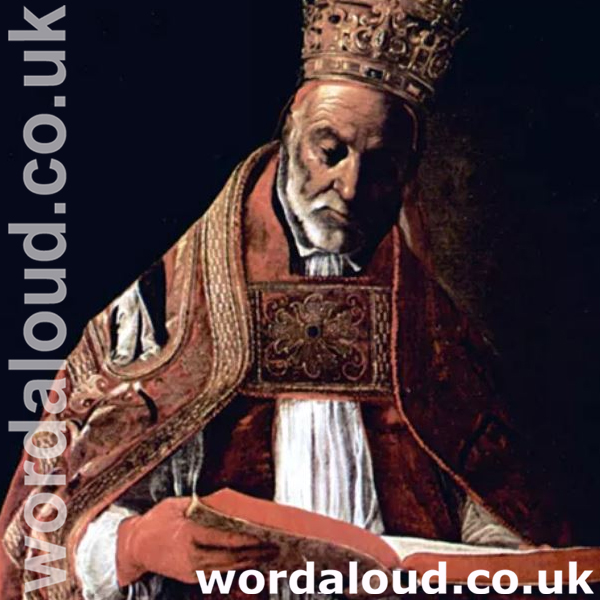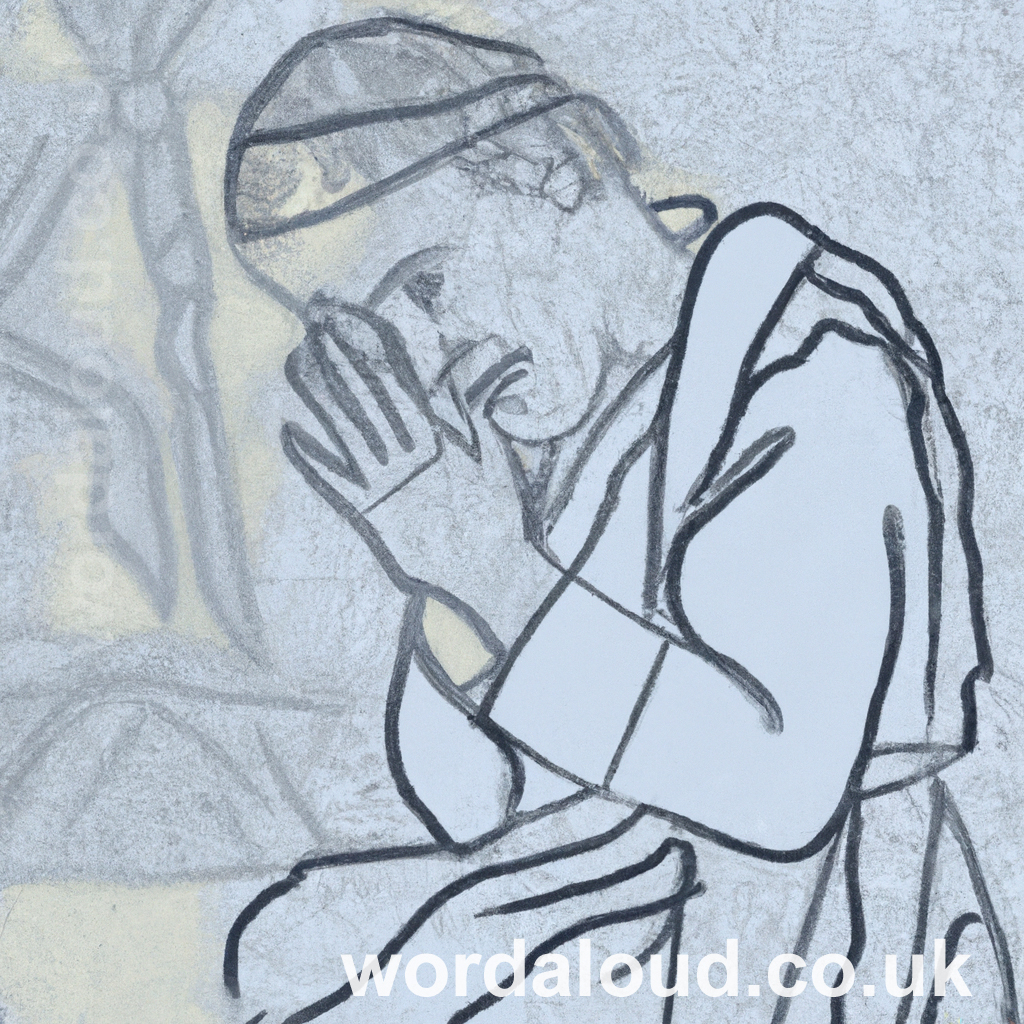‘A man blameless and upright, one who feared God.’
Pope Saint Gregory the Great (c. 540–604)
Gregory was born in Rome around 540 into a wealthy senatorial family. His father, Gordianus, was a Roman official, and his mother, Silvia, later became a saint. He received an education in grammar, rhetoric, and law, preparing for public service. He became Prefect of Rome, overseeing administration, justice, and finance.
After leaving public office, he converted his family home into a monastery dedicated to Saint Andrew and became a monk. Pope Pelagius II appointed him as a papal envoy to Constantinople, where he represented the pope in dealings with the Byzantine court. After returning to Rome, he resumed monastic life but was elected pope in 590 following Pelagius II’s death.
As pope, he managed Rome’s defense against the Lombards, negotiated peace, and organized famine relief. He directed Church lands to fund aid for the poor and restructured church governance. He developed relations with rulers and strengthened the authority of the papacy in both spiritual and political matters.
He sent missionaries, including Augustine of Canterbury, to convert the Anglo-Saxons. He corresponded with bishops and rulers, giving instructions on pastoral care and church administration. His writings included Moral Reflections on Job, Pastoral Rule, and numerous letters. He influenced liturgical practices, and Gregorian Chant later became associated with him.
Gregory died on March 12, 604. He was canonized and later recognized as a Doctor of the Church.
A Commentary On Job By Saint Gregory The Great
Some people are so simple that they do not know what uprightness is. Theirs is not the true simplicity of the innocent: they are as far from that as they are far from rising to the virtue of uprightness. As long as they do not know how to guard their steps by walking in uprightness, they can never remain innocent merely by walking in simplicity. This is why Saint Paul warns his disciples I hope that you are also wise in what is good, and innocent of what is bad but also Brothers, you are not to be childish in your outlook, though you can be babies as far as wickedness is concerned. Thus Christ our Truth enjoins his disciples with the words Be cunning as serpents and yet as harmless as doves. In giving them this admonition, he had to join the two together, so that both the simplicity of the dove might be instructed by the craftiness of the serpent, and the craftiness of the serpent might be attempered by the simplicity of the dove.
That is why the Holy Spirit has manifested his presence to mankind, not only in the form of a dove but also in the form of fire. For by the dove simplicity is indicated, and by fire, zeal. So he is manifested in a dove and in fire, because those who are full of the Spirit have the mildness of simplicity, but catch fire with zeal of uprightness against the offences of sinners.
An upright and honest man who feared God and shunned evil. Undoubtedly whoever longs for the eternal country lives sincerely and uprightly: perfect in practice, and right in faith, sincere in the good that he does in this lower state, right in the high truths which he minds in his inner self. For there are some who are not sincere in the good actions that they do, looking not to be rewarded within themselves but to win favour from others. Hence it is well said by a certain wise man, Woe to the sinner who follows two ways. A sinner goes two ways when an action he performs belongs to God but what he aims at in his thought belongs to the world.
It is well said, who feared God and shunned evil, for the holy Church of the elect starts on the path of simplicity and of uprightness from fear but completes that path in charity. When, from the love of God, she feels an unwillingness to sin, then she may shun evil. But when she is still doing good deeds from fear then she is not entirely shunning evil: the fact is that she would have sinned if she could have sinned without being punished.
So then: when Job is said to have feared God, it is rightly related that he also shunned evil. Fear comes first and charity follows later; and when that has happened, the offence which is left behind in the mind is trodden underfoot by the desires of the heart.

Summary | A Commentary On Job By Saint Gregory The Great
This passage comes from Moral Reflections on Job by Pope Saint Gregory the Great, a commentary written during his time as papal envoy in Constantinople. The Moralia in Job is a detailed exegesis exploring the literal, allegorical, and moral dimensions of the biblical text. Pope Saint Gregory addresses themes of human speech and character, drawing on Christ’s teaching that a tree is known by its fruit. He presents speech as a reflection of the inner self, where words expose the condition of the heart.
Pope Saint Gregory examines the contrast between sincerity and hypocrisy. He warns against those who claim righteousness but speak falsely, arguing that speech and conduct must align with inner truth. He references Scripture to illustrate that sound words come from a heart grounded in wisdom, while deceitful words signal inner disorder. He applies this principle to both personal morality and leadership, urging individuals to examine themselves.
Pope Saint Gregory’s analysis follows his broader concern with moral discipline. He instructs his audience on self-examination and consistency in word and deed. He presents speech as a test of virtue, requiring individuals to reflect on whether their words match their professed beliefs.








